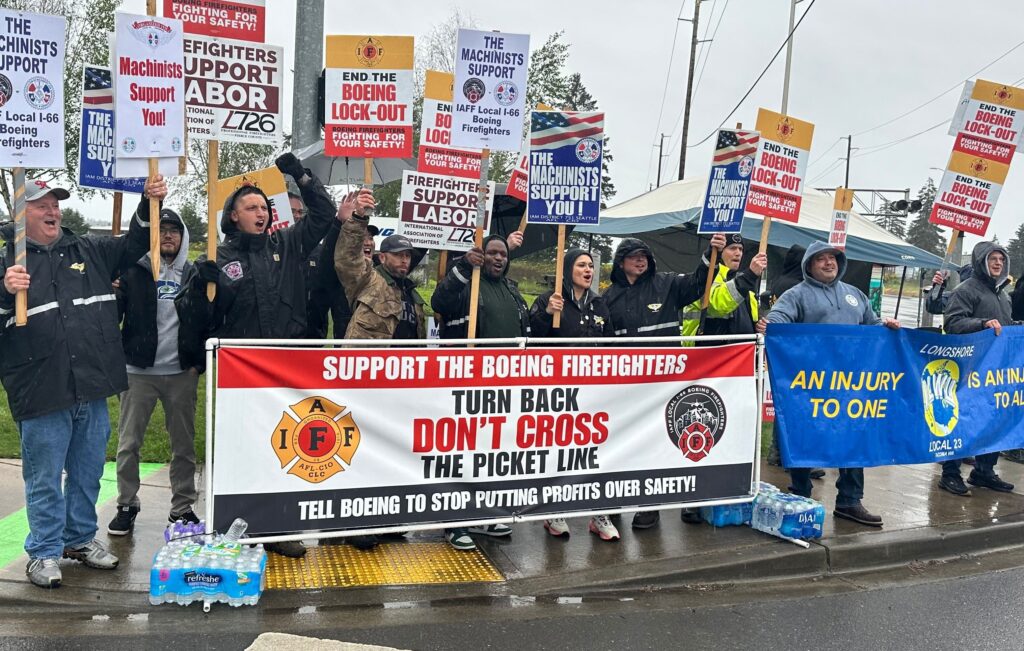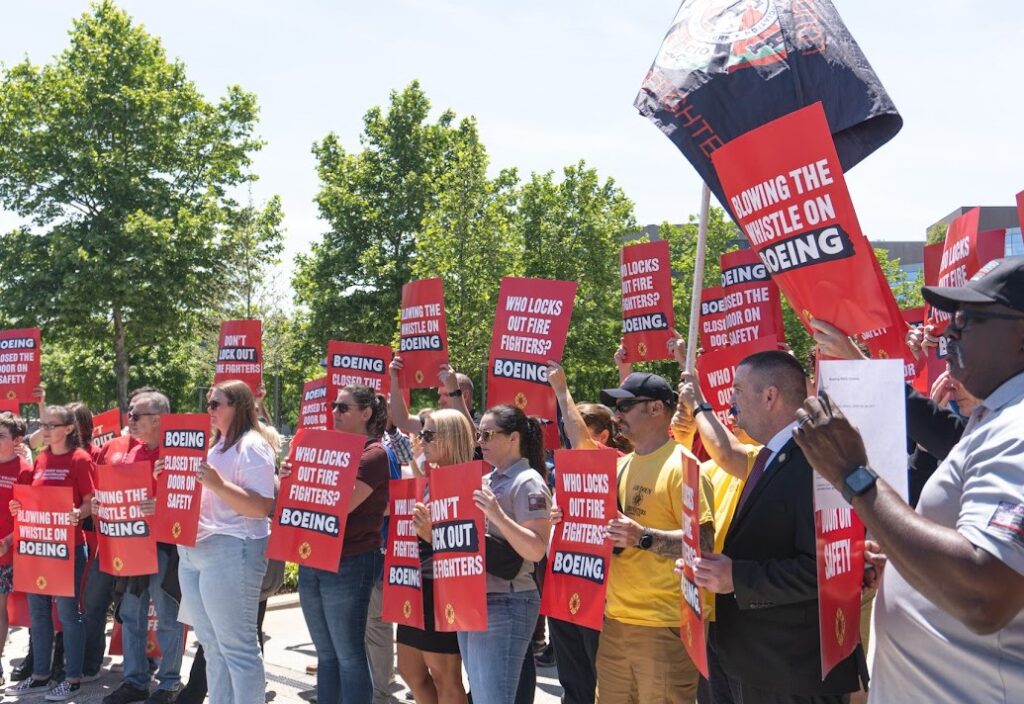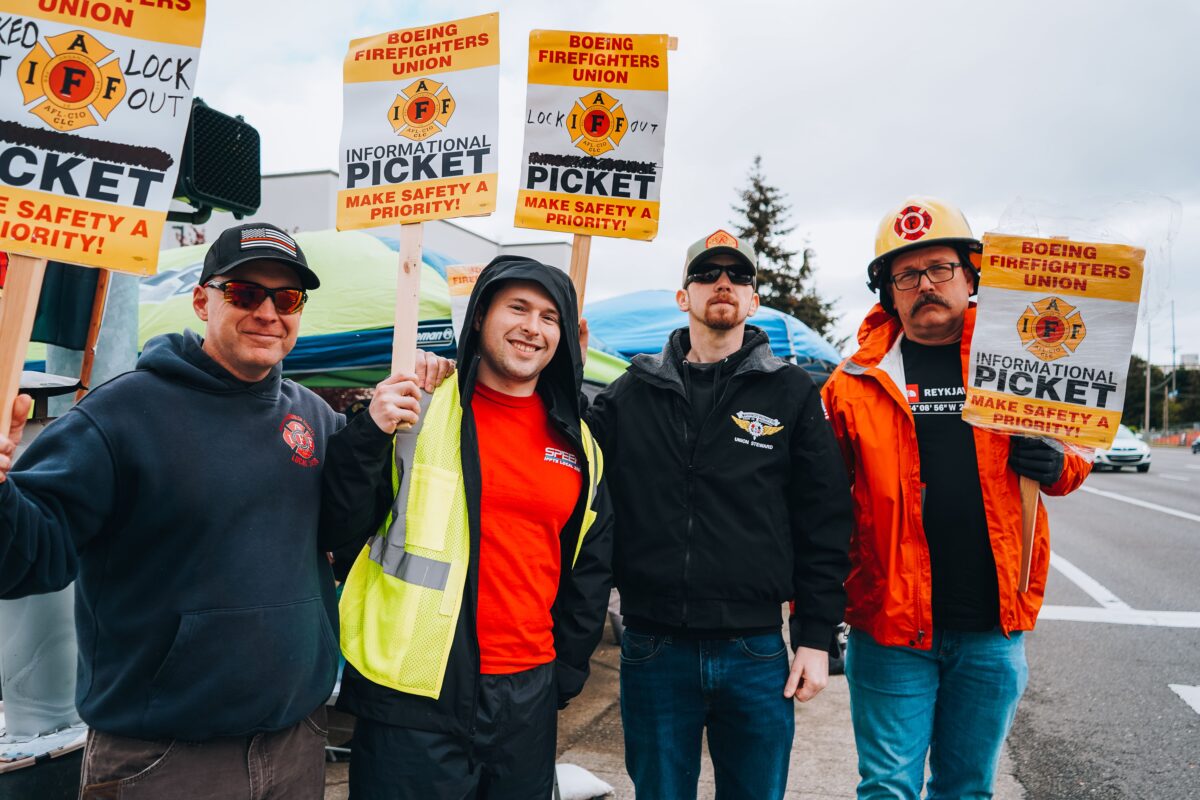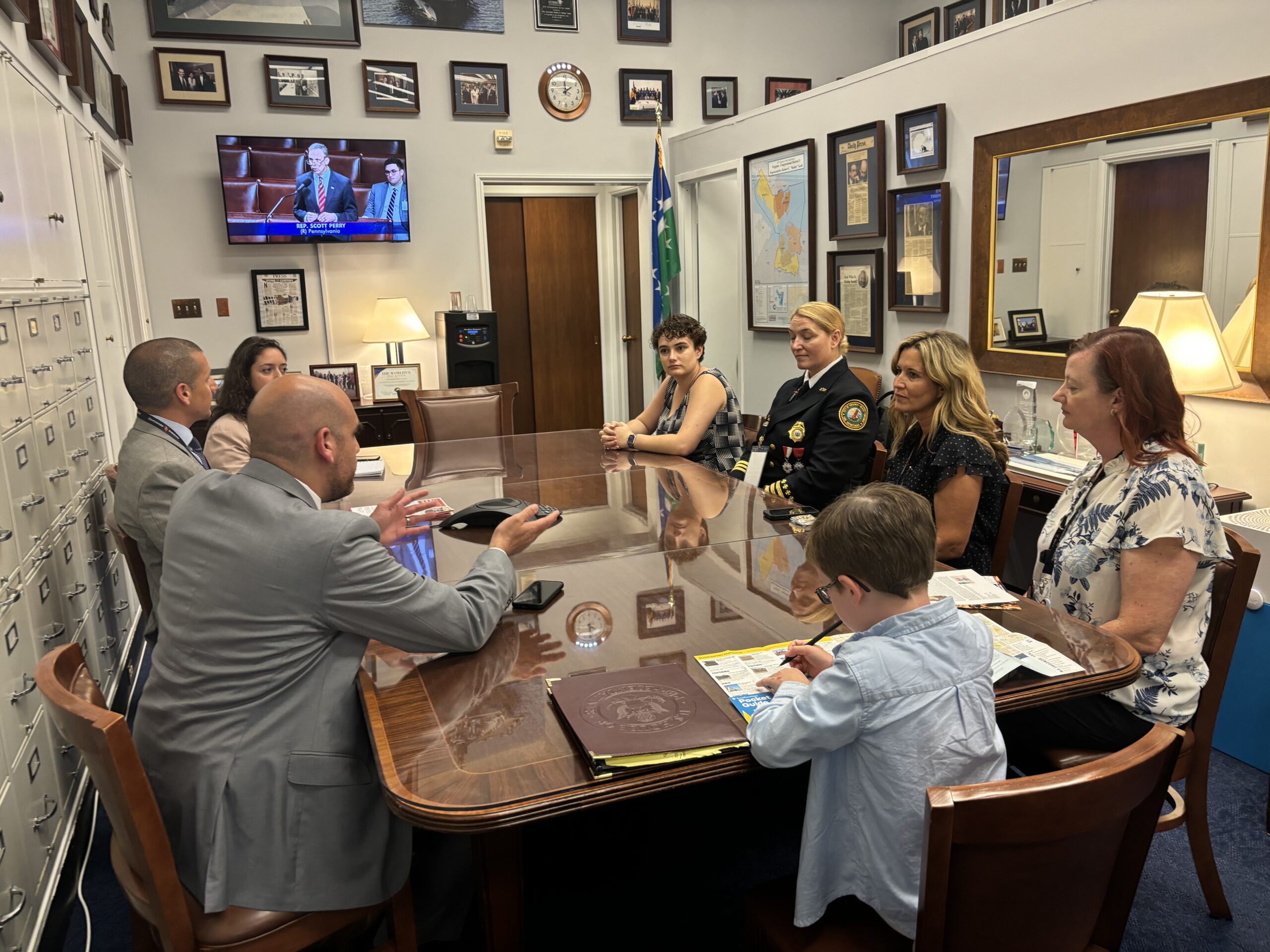Boeing Fire Fighters Local I-66 members will return to work after voting to ratify a four-year contract with the Boeing Company that offers better pay and an improved seniority scale.
The lockout drew national attention from the media and lawmakers, including Washington State Governor Jay Inslee and President Joe Biden, who urged Boeing to return to the bargaining table and give fire fighters “the pay and benefits they deserve.” Boeing, facing federal investigations over numerous safety violations, returned to talks and finally agreed on May 30 to a contract acceptable to I-66 membership.
“Boeing Local I-66 fire fighters stood tall in the face of a multi-billion-dollar company trying to break their ranks. The entirety of the Labor Movement stood with them, as did President Biden,” said General President Edward Kelly. “We’re grateful our rank-and-file members got the contract they deserve, which provides them with fair pay for their critical work.”
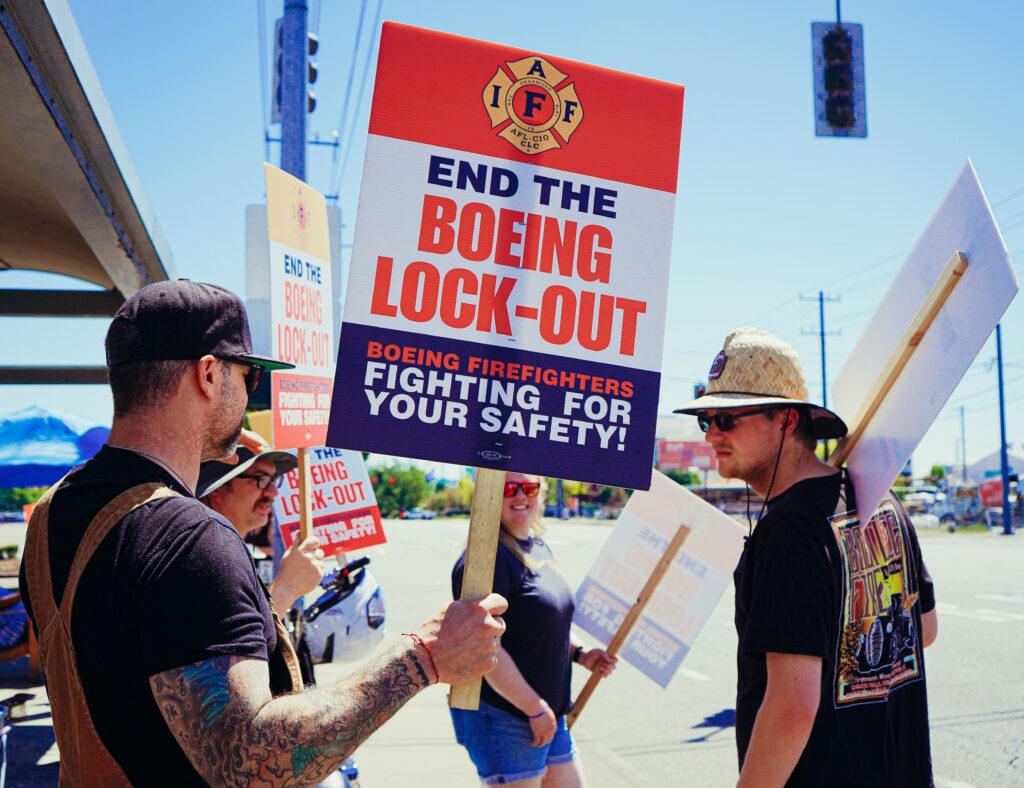
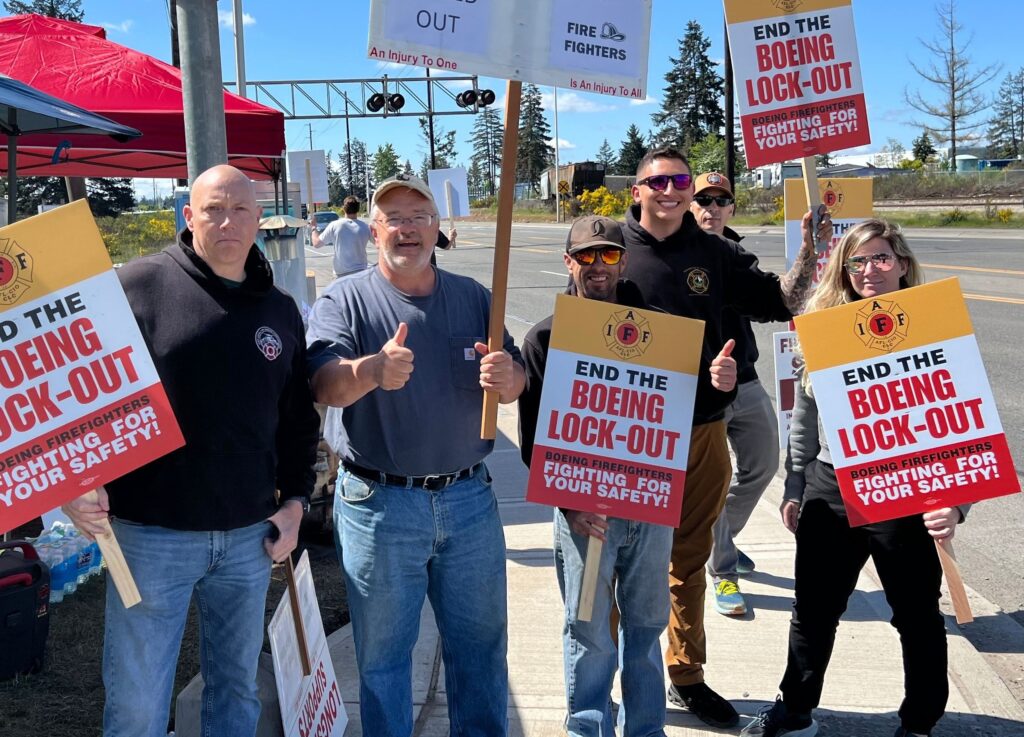
The Boeing fire fighters had been working under a contract that paid members about 30 percent less than nearby fire departments, creating a constant retention problem as experienced fire fighters left for better pay.
The new four-year contract includes wage increases of 2 to 3 percent annually, with guaranteed overtime, increasing average annual pay by up to $21,216. The agreement also includes a one-time $1,000 signing bonus and other compensation improvements that reduce the number of years fire fighters must work to receive top pay.
“This is why collective bargaining matters,” said Kelly. “It gives workers a voice at the table and strengthens our country’s middle class.”
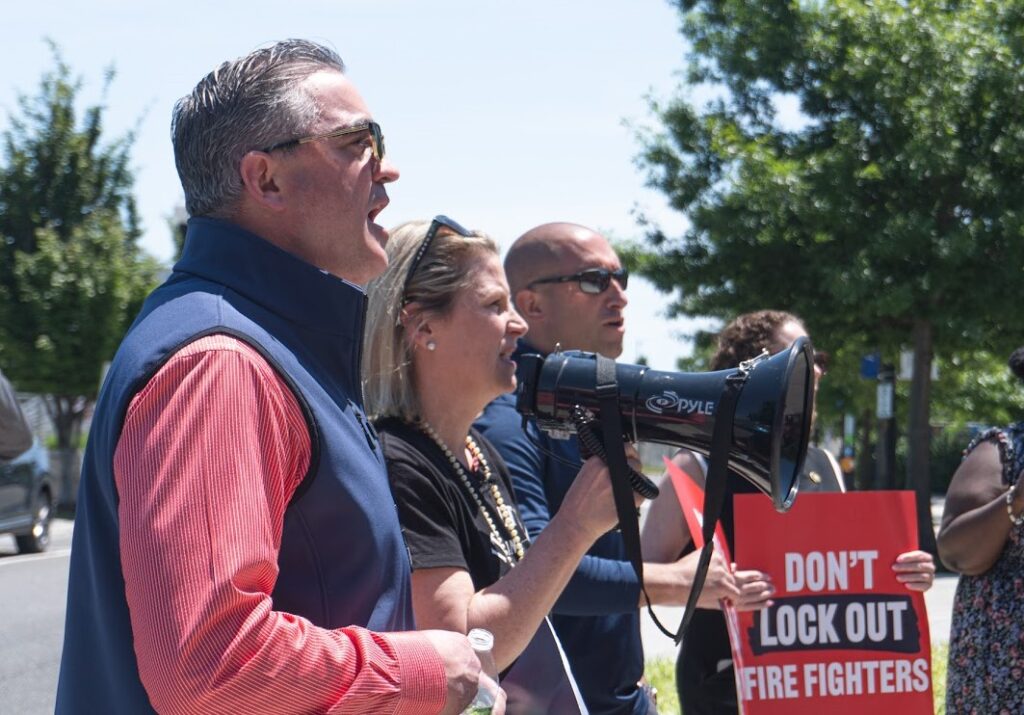
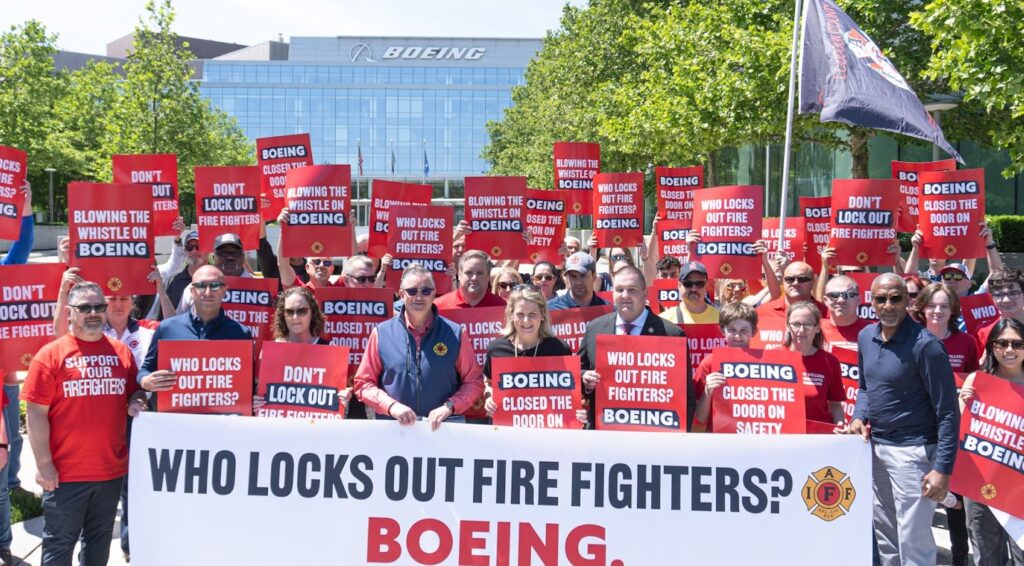
According to I-66 Local President Casey Yeager, the new contract brings Boeing fire fighters closer to parity with other fire departments and will help keep them at Boeing.
This is why collective bargaining matters. It gives workers a voice at the table and strengthens our country’s middle class.
General President Edward Kelly
“This was a David and Goliath story, and I don’t think Boeing expected us to stand together and fight the way we did,” said Yeager. “The pay was important, but our members also wanted to be respected because we love Boeing, and those employees are like family. This contract shows us that Boeing values the work we do.”
Throughout the nearly month-long lockout, Yeager reminded his brothers and sisters to “just fight the fight! Give it your best, and don’t look back.”
In mid-May, Kelly and AFL-CIO President Liz Shuler rallied with IAFF staff and members from the 4th District outside Boeing’s headquarters in Northern Virginia.
The overwhelming vote, 86 to 24, capped a contentious labor dispute with the massive global aerospace manufacturer. I-66’s 125 members in Washington State were locked out on May 4 and rejected two previous offers from Boeing that failed to address their concerns over wages and retention issues. I-66 members remained steadfast in their demands and staged 24/7 picket lines outside the entrances of six of Boeing’s facilities.
This was a David and Goliath story, and I don’t think Boeing expected us to stand together and fight the way we did. The pay was important, but our members also wanted to be respected because we love Boeing, and those employees are like family. This contract shows us that Boeing values the work we do.
I-66 Local President Casey Yeager
“The courageous members in Seattle who have put their livelihoods on the line, who have said, ‘Enough is enough, we need a fair contract,’ those are the individuals we advocate for daily in the labor movement,” Shuler said.
According to Ricky Walsh, 7th District Vice President, the win could show other industrial fire fighters and private emergency medical workers the importance of organizing.
“We have just experienced what it takes to win a collective bargaining agreement with a powerful private sector employer,” Walsh said. “We can begin to build a playbook to begin organizing other private sector affiliates.”
